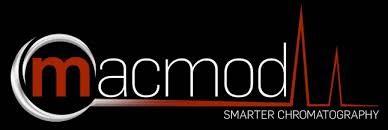Joint CFDV & NJCG Event at EAS: Capillary Electrophoresis with Integrated Enzyme Analyses
with Lisa Holland
About This Meeting
Come join CFDV and NJCG for a joint symposium at EAS 2022! Meeting will be held on the third floor of the Crowne Plaza Conference Center.
Schedule:
6:00 pm - Appetizers & Cash Bar
6:30 pm - Speaker 1
Edward Faden, Mac-Mod Analytical
In this presentation we will discuss the use of a new fully porous monodisperse silica particle and its application in HPLC and UHPLC separations. Silica particles have been the mainstay in HPLC for 50+ years. Over time, various innovations have taken place in terms of particle size, particle composition and particle morphology with the goal of improving chromatographic stability and efficiency. With this new particle innovation, there are considerable advantages over both traditionally fully porous “non-monodisperse” UHPLC/HPLC particles as well as core-shell particles. In this discussion we will take a specific look at advantages in sample loading, method scaling and column backpressure. We discuss the impact on the Van-Deemter curve as well as minimized band dispersion due to tighter d90/10 size distribution provided by monodisperse particles. Combining this monodisperse particle with a range of bonding chemistries can therefore provide the optimum in terms of sample resolution and sensitivity in HPLC method development.
Speaker Bio:
Edward Faden is the National Sales Manager at MAC-MOD Analytical. He received his Bachelor of Science in Chemistry at the University of Pittsburgh in 2013. Since then, he has served as a trusted chromatography partner for customers for 10 years. He has experience working with major pharmaceutical, biopharmaceutical, industrial chemical, and environmental companies to improve their workflow and provide innovative solutions to their challenging chromatography related problems. He has been acknowledged on several publications and posters and has frequently been counted on to provide industry leading presentations at conferences, meetings and on-site at customer facilities.
07:00 pm - Speaker 2
Lisa Holland, West Virginia University
Capillary Electrophoresis with Integrated Enzyme Analyses
Glycosylation is a non-templated post-translational modification that affects the physiological function of biomolecules and biological therapeutics. The structure of oligosaccharides is dependent upon enzymes that truncate or elongate these biopolymers. In this presentation technology is described that integrates enzymes into capillary electrophoresis separations. With this technology, enzymes can be used to identify oligosaccharide structure. In addition, enzymes can be evaluated for activity. These capillary separations utilize nanogels which have a thermally-dependent viscosity. At temperatures below ~22°C nanogels have liquid-like viscosity. At higher temperatures nanogels have a gel-like viscosity. This property makes it easy to fill and pattern nanogels in narrow-bore capillaries at low temperature. Once the nanogel is loaded into the capillary, the fluids are then locked in place by raising the temperature to gel the material. Nanogels maintain enzyme function and are biocompatible. As a result, these matrices are modified to contain enzymes and then are introduced and patterned in a separation capillary. This enables the precise placement of 2-5 nanoliter enzyme reaction zones at the beginning of a capillary with a total liquid volume less than 1 microliter. Enzyme reactors of this low volume are mixed electrophoretically and then the substrate and products, or products, are separated, detected, and quantified. This approach is automated and reduces the time for enzymatic conversion from hours to minutes. The analyte resolution of biomolecules separated in nanogel yields efficient separation. Applications with hydrolase and transferase enzymes are demonstrated. This work is significant to separations because general separation methods are converted into sophisticated multifunctional separations that are programmed, erased, and repeatedly run.
Speaker Bio:
Lisa Holland is a Professor of Chemistry at West Virginia University, specializing in microscale separations of biomolecules relevant to human health. She received her B.S. degree in Chemistry from the University of Maryland at College Park while working in the Electroanalytical Research Group at the National Institute of Standards and Technology. She obtained her Ph.D. in Chemistry from the University of North Carolina at Chapel Hill under the direction of Professor James Jorgenson. Through a National Research Service Award she held a postdoctoral fellowship under the direction of Professor Susan Lunte in the Department of Pharmaceutical Chemistry at the University of Kansas. Dr. Holland is the recipient of a National Science Foundation Faculty Early Career Development Award and of the Benedum Distinguished Scholar Award. She is serving as member of the International Advisory Board of Analytical and Bioanalytical Chemistry and is a board member of the Society for Microscale Separations and Bioanalysis. She has served as the Chair of the American Chemical Society Subdivision of Chromatography and Separation Chemistry and as a standing member of the NIH Instrumentation and Systems Development Study Section.
-
Pricing - Registration: Non-Student $0
- Registration: Student $0
-
Event Times - 12:00 AM Executive Committee Meeting
- 06:00 PM Social Hour
- 06:00 PM Dinner
- 06:30 PM Presentation
-
Location -
Meal Options - Appetizers And Cash Bar
